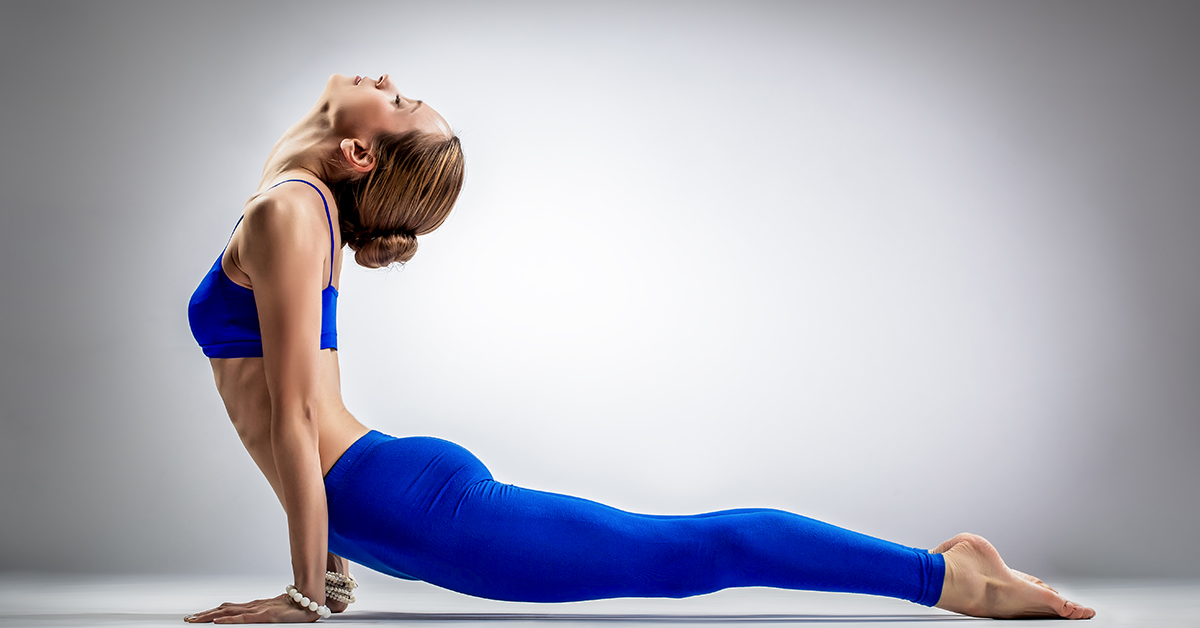If you have done the yoga pose known as "downward dog" today, you probably feel more at ease already. Regardless of your level of skill, everyday yoga practice will allow you to feel better from head to toe.
Anybody may benefit from yoga's benefits for their physical and mental health, regardless of age. Additionally, yoga has the potential to become a crucial part of your rehabilitation and may even hasten the healing process if you are recovering from surgery, receiving treatment for an illness, or managing a chronic condition.
Yoga-specialist therapists may work with patients to create individualized treatment plans that complement their ongoing medical and surgical procedures. Therefore, yoga could be a helpful technique for speeding up the healing process and helping people experience their symptoms in a more centered and comfortable way.
1. Strength, balance, and flexibility are improved by yoga.

Holding a position for a longer period of time may help improve strength, while slow movements and deep breathing can boost blood flow and raise muscle temperature. It is possible to maintain balance by standing on one foot while holding the other foot at a right angle to your calf or above your knee (but never on the knee). For the duration of one minute, you should make an effort to concentrate on a single point in front of you.
2. Yoga helps with back pain relief.

Yoga is as good as basic stretching for easing pain and improving mobility in people with lower back pain. The American College of Physicians recommends yoga as a first-line treatment for chronic low back pain.
Make sure that your hands are placed beneath your shoulders and that your knees are placed underneath your hips. Get down on all fours. In the beginning, take a deep breath in while you let your stomach to sink toward the ground. The next step is to exhale while drawing your navel toward your spine and arching your spine in a manner similar to how a cat would stretch.
3. Yoga can reduce the symptoms of arthritis.
Gentle yoga has been shown to ease some of the discomfort of tender, swollen joints for people with arthritis, according to a Johns Hopkins review of 11 recent studies.
4. Yoga benefits heart health.
Regular yoga practice may reduce levels of stress and body-wide inflammation, contributing to healthier hearts. Several of the factors contributing to heart disease, including high blood pressure and excess weight, can also be addressed through yoga. Get on all fours, then tuck your toes under and bring your sitting bones up, so that you make a triangle shape. Keep a slight bend in your knees, while lengthening your spine and tailbone.
5. Yoga relaxes you, to help you sleep better.
Research suggests that doing yoga on a regular basis before bedtime may help you get into the right mindset, prepare your body for sleep, and stay asleep. Sitting with your left side against a wall is a good place to start. Subsequently, shift your torso to the right and raise your legs until they rest against the wall. Make sure your sitting bones stay close to the wall and that your back stays on the floor. For anywhere from five to fifteen minutes, you may stay in this position.
6. Yoga can mean more energy and brighter moods.
You may feel increased mental and physical energy, a boost in alertness and enthusiasm, and fewer negative feelings after getting into a routine of practicing yoga.
7. You may control your stress by doing yoga.
As stated by the National Institutes of Health, there is scientific data that demonstrates the benefits of yoga for the management of stress, mental health, mindfulness, good eating, weight reduction, and quality sleep. Place yourself in a supine position with your palms facing upward and your limbs being gently extended out away from your body. Make an effort to refocus your thoughts while taking deep breaths. Keep this stance for anywhere between five and fifteen minutes.
8. Yoga connects you with a supportive community.
Participating in yoga classes can ease loneliness and provide an environment for group healing and support. Even during one-on-one sessions loneliness is reduced as one is acknowledged as a unique individual, being listened to and participating in the creation of a personalized yoga plan.
9. Yoga promotes better slf-care. ( Scientific Research on Yoga Benefits )
Numerous prominent organizations, like the National Institutes of Health and the US military, are taking note of and acting upon scientific evidence supporting yoga's health-promoting properties. Numerous studies have shown the health benefits of yoga for a range of illnesses, such as cancer, women's health, osteopenia, arthritis, balance issues, and chronic pain.